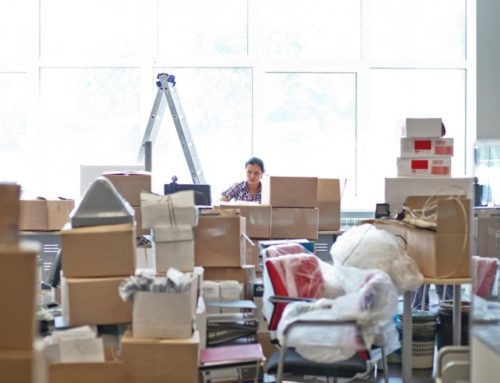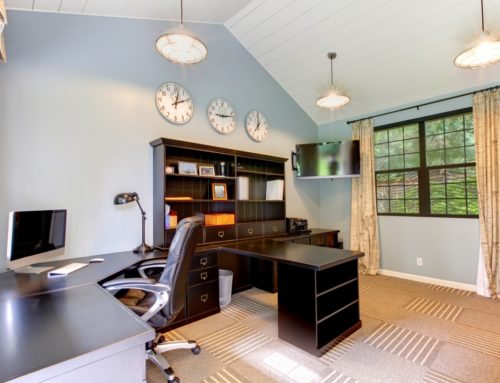
Try to be clutter-free
While stacks of papers, scattered post-it notes, and fidget toys or decorations might be what you’re used to, there’s a lot of research that shows that there is definitely a point where too much clutter becomes oppressive. By all means, spread out your notes, spreadsheets, or whatever else you’re working on while you’re working, but once the project’s done, put it away and get it off the desk. Designate places where things belong, and take a break every day or so to clean up and reduce clutter. Do you really need that old wall calendar? Is that stack of memos necessary? And that pyramid of old coffee cups really should go.
When you specifically choose to put important, necessary, or comforting items on your desk or on your walls, you’ll find it easier to focus on the important things. And if something is really visually busy and distracting, you need to get it out of your main field of view if not remove it from your workspace completely.
Make it personal and comfortable
Part of reducing unnecessary or unpleasant clutter involves thinking about the things that you do want to see. Are there pictures or colors that you find soothing? Put them around you so that when you look away from your monitor, you’re seeing something that relaxes you and makes you happy. Maybe a small plant or two would be nice, or your kids’ paintings. Whatever it is, have something you want to look at besides just the walls or the computer screen.
See if your supervisor will let you play music through headphones, or if not, if they’ll allow you to reduce office noises that can be distracting. Make sure you have good lighting in your cubicle–invest in good lamps, see if you can get natural light near your space. Look at light boxes or day-light bright lamps that can help cut down on the flourescent doldrums.
Find other ways to make the space comfortable. If your office chair isn’t very nice, invest in your own. Keep a small fan on the desk to help the air move around, or if it’s too cold, have a nice desk blanket. And make sure to stock a drawer with snacks–not candy or cookies, but something healthy that can give you some energy without making you sugar-crash in ten minutes.
Don’t stay chained to your desk
Give yourself regular breaks to turn away from the screen and look at something else. Get up and walk around for a couple of minutes, or stand and stretch. If it’s easy to step outside every hour or so, do so. You don’t need to smoke to deserve time away from the desk now and then. Make a regular habit of chatting with coworkers, so you don’t feel isolated. Remember that good productivity requires regular injections of energy and a chance to breathe between tasks.
Organize your work life
The most abstract thing is to take control over your own workflow. This can be helped with project timelines, a daily task list, or even just a post-it reminder about what you need to get done this hour.
Most importantly, don’t try to multitask. Choose what needs to be done, and work just on that until it’s finished–or at least, until someone else has to do something for you to continue with it. Don’t keep hitting refresh on your email, Twitter, or other distractions. If necessary, install tools that will block certain websites for a while so that you can just finish a specific task. Once that’s done, move on to the next thing, and then the thing after that.
It’s also important that when you’re working, that you minimize interruptions. Block off times on your work calendar when you’re most productive, so that others know you shouldn’t be in meetings during those periods. Talk to your supervisor and coworkers about the fact you need to focus, and see if they can give you at least an hour at a time.
Also, make a rule that you only touch something once. If you open an email, you either respond to it or delete it, but you don’t let it sit in your inbox waiting for a decision later. If you’re handed a memo, read it then or throw it away. This will reduce the feeling that things are piling up, and establish the habit that once you start something, you finish it as soon as possible.
And possibly the most important thing to remember is that no matter how comfortable your office becomes, you need to balance your time at work with your time at home.



